In the contemporary employment landscape, veteran employment emerges as a critical
issue. Despite the decline in the veteran unemployment rate to 3.7%—a figure
surpassing the national average, the surface-level statistics mask a deeper, more
complex problem. While finding their way into the workforce, veterans face significant
challenges in sustaining employment. A staggering 43% of veterans leave their first
civilian job within one year, and 80% depart before the completion of their second year.
This trend highlights a glaring mismatch between veterans finding employment and
securing roles that align with their skills, needs, and ambitions.
The root lies in a fundamental misunderstanding and underappreciation of the
invaluable experience veterans bring to the civilian workforce. With careers spanning
from four to thirty years in the military, veterans possess a wealth of skills and
experiences that are often overlooked during the hiring process. The challenge extends
beyond the hiring phase, with veterans frequently finding themselves in environments
that fail to recognize or cultivate their potential. This misalignment can impact their
career trajectories and the organizations operational efficiency and culture.
From my journey transitioning from military to civilian employment, I’ve experienced
firsthand the struggles that come with adapting to a corporate environment that lacks
understanding and support for veterans. Despite being equipped to lead operations, I
was often underestimated, reflecting a broader systemic issue where employers must
grasp the depth of veterans’ capabilities. This gap in understanding leads to high
turnover rates, increased personnel costs, and a missed opportunity for organizations to
harness the unique skills veterans offer.
Being Vet READY and fostering a responsible corporate veteran environment is crucial.
It’s not just about creating jobs for veterans; it’s about understanding their experiences,
recognizing their value, and integrating them into roles where they can thrive. Veterans
prioritize the fit and culture of their workplace over monetary compensation. They seek
environments where leadership, integrity, and values align with their own. High-
reliability organizations exemplify this with principles that resonate deeply with
veterans, including sensitivity to operations, preoccupation with failure, reluctance to
simplify, resilience, and deference to expertise.
Addressing this issue requires a concerted effort from companies, organizations, and
government agencies to become corporately responsible towards veterans. This means
investing time and resources into understanding how to develop thriving veteran
environments. Aptitude testing and utilization can be crucial in aligning veterans’ skills
with appropriate roles, reducing turnover, and saving costs.
As we consider the way forward, it’s essential for organizations not only to hire veterans
but also to place them in roles that leverage their unique strengths and experiences.
Training hiring managers on veteran-specific hiring practices and offering onboarding
and transition support are critical steps in this direction.
Now is the time for organizations to step up and create environments where veterans
can excel. By doing so, we honor their service and enrich our workforce with their
exceptional skills and perspectives. Let’s not forget that supporting our veterans in their
transition to civilian employment is not just a matter of policy—it’s a testament to our
gratitude and respect for their sacrifices. Your nation needs you now more than ever to
commit to being Vet READY and to foster a corporate culture that truly values and
supports our veterans.
Reach out today to get started getting Vet READY.

